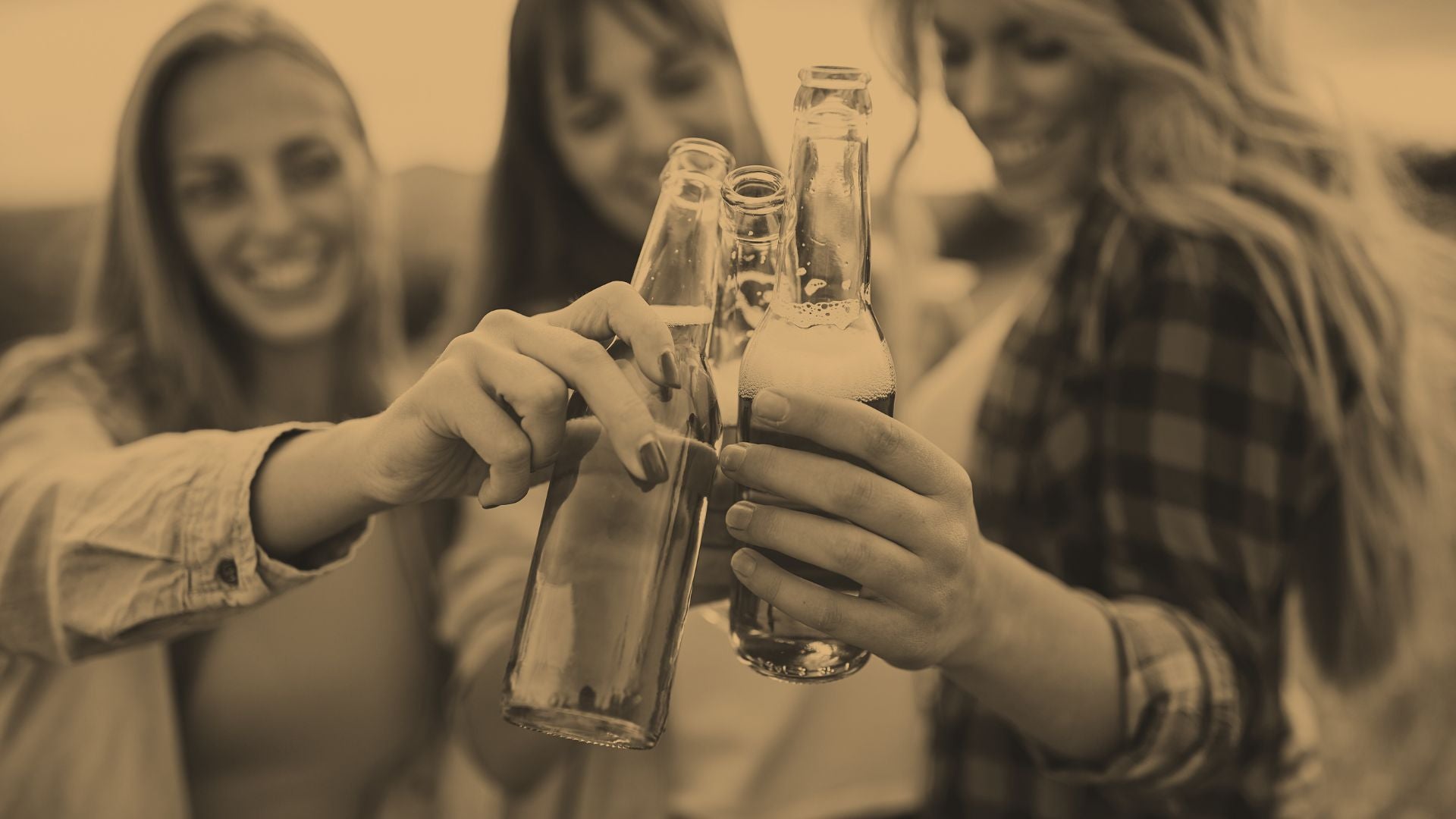
How To Get Rid of a Hangover Headache: 6 Evidence-Based Tips
If you’ve ever woken up after a night of alcohol consumption with a horrible, pounding headache, you know that being in that state means you’d try almost anything to feel better.
Factors that contribute to hangover headaches include alcohol-related vasodilation (when blood vessels widen), low blood sugar, dehydration, and other physiological effects of alcohol.
Unfortunately, some common hangover advice can end up prolonging your discomfort and can even increase your risk of developing alcohol dependence—so follow our six evidence-based tips below for relieving that dreaded post-drinking headache.
What NOT To Do: Don’t Drink More Alcohol to Relieve a Hangover Headache
You may have heard of the concept of having a little bit of the “hair of the dog [that bit you]” in your search for hangover remedies. In fact, more than one in ten social drinkers admits to using this approach to relieve hangover symptoms at least once in the previous year.
But not only should you leave drinking more alcoholic beverages off your list of go-to hangover cures—it’s probably the worst possible way that you could deal with the aftereffects of alcohol.
There are a couple reasons to avoid this approach. The first is that it has no scientific evidence backing up its actual efficacy. The second is that, while it might temporarily relieve hangover symptoms, your hangover headache (and other symptoms like nausea, fatigue, etc.) will come back as soon as the alcohol wears off.
In other words, the so-called “hair of the dog” remedy effectively puts off the misery of a hangover for just a few more hours, rather than preventing or even reducing it. Your headache will almost certainly come back, and it may even be worse than when you first woke up with a hangover. That’s not to mention that some researchers believe this approach can increase your risk of developing alcohol dependence and engaging in alcohol abuse in the future.
Instead, follow these evidence-based tips to help support your body as it recovers from alcohol consumption, minimizing that hangover headache (and other unpleasant symptoms) as effectively as possible.
What To Do: Six Evidence-Based Tips for Relieving a Pounding Hangover Headache
1. Drink plenty of water (and other hydrating beverages)
Alcohol is a diuretic that contributes to dehydration by causing your kidneys to produce more urine. Meanwhile, other negative effects of alcohol (like sweating, vomiting, or diarrhea) can also worsen dehydration. One of the worst symptoms of dehydration? A terrible headache.
To relieve your hangover headache, do your best to get (and stay!) hydrated. You can sip a plain glass of water as well as broth, fruit juice, and electrolyte/sports beverages like Pedialyte or Gatorade. If you are able to stomach them, smoothies and water-rich foods like cucumbers and watermelon are another effective choice for hydration.
2. Address hypoglycemia (low blood sugar levels)
Another effect of alcohol is lowering your blood sugar, because the body produces lactic acid as it processes the alcohol you consume. Lactic acid can reduce your body’s ability to maintain blood sugar levels.
After a night of drinking, you may not have much of an appetite, especially if you’re dealing with nausea or an upset stomach in addition to your headache. A high-carbohydrate, bland breakfast (such as a couple pieces of toast) will go down relatively easily, relieving your hypoglycemia and reducing any symptoms it may be contributing to.
3. Take the right over-the-counter pain reliever
Nonsteroidal anti-inflammatory drugs (NSAIDs) like ibuprofen (available under the brand names Advil, Motrin, etc.) and aspirin can be incredibly helpful when your headache is bad. If you go this route, be sure to take them with food, and be warned that NSAIDs can cause irritation to the stomach (as can alcohol) if taken for long periods.
It’s also important not to take pain relievers containing acetaminophen to deal with hangover symptoms, because the remaining alcohol in your body could increase acetaminophen’s hepatotoxic effects (make it more toxic for the liver).
4. Get lots of rest to help your body bounce back
More than anything, the main cure for a hangover is time, giving your body plenty of room to bounce back from the effects of alcohol. After all, it’s in the process of removing the toxic byproducts of alcohol processing (such as acetaldehyde) from your system, achieving rehydration, stabilizing brain activity, regulating the immune system, and healing irritated tissues in the gut and elsewhere. So when you’re recovering from a hangover, try to avoid tiring or draining activities and experiences.
5. Take Capsulyte’s PREGAME Before Drinking
This tip requires a little bit of extra planning—it involves taking a supportive supplement before drinking—but it’s worth it. PREGAME was formulated by Dr. Dan Nguyen, MD, MBA to help the body deal with the effects of alcohol. It includes NAC, which can reduce negative post-drinking feelings; DHM, an anti-inflammatory and antioxidant; Clovinol®, which may reduce negative feelings after drinking by more than half; and Siliphos®, a milk-thistle derived compound that may reduce risk of alcohol-related cirrhosis.
6. Take Capsulyte’s HYDRATION After Drinking
As previously mentioned, minimizing and relieving dehydration is one of the best ways to avoid all alcohol-related symptoms, including headaches. HYDRATION is formulated with Hydra 4G™, an optimal blend of sodium, potassium, magnesium, and calcium; B vitamins, which can regulate energy metabolism, blood cell formation, and neurological function; Liposomal Pureway C™, an antioxidant that may also improve immune function; and Zinc, a mineral that’s essential for immune function.
Find lots more scientific advice on the Capsulyte blog, which is regularly updated.

